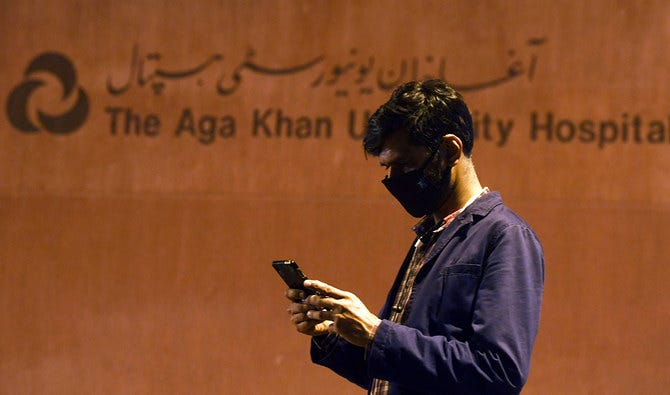Pakistani Journalist Unions Slam Defamation Law
“Draconian” Law is in Violation of Press Freedom

Journalists, human rights activists and opposition political parties in Pakistan voiced concerns over the negative impact on press freedom and freedom of expression in general in the country due to the adoption of a Defamation Law by the Punjab provisional assembly on Monday 20 May. They called the law “draconian” and demanded its withdrawal in its present form.
Journalist organizations in the country accused the newly elected coalition provincial government of bypassing an agreement with them to delay the passing of the bill in order to incorporate the concerns of journalists, and instead rushed to pass the bill in the assembly in the middle of the night amid protests by the opposition.
The legislative assembly of Punjab, Pakistan’s largest province, adopted the Defamation Bill 2024 with a voice vote after rejecting all the amendments proposed by the opposition Pakistan Tehreek-e-Insaf (PTI, who sit in the assembly as members of the Sunni Ittehad Council (SIC)). The government’s move led to a spontaneous boycott of the proceedings by the journalists sitting in the press gallery of the assembly.
The journalist unions claimed that the government led by chief minister Maryam Nawaz of Pakistan Muslim League-Nawaz (PML-N) refused to send the bill to a select committee for wider consultation as demanded by them. They claim that it was agreed during a meeting between them and the ministry of information Azma Bukhari a few days ago.
The proposed legislation defines defamation as drafting and dissemination of “fake news” on media platforms including on the social media sites about individuals, entities or persons holding the constitutional posts and provides for a fine of up to 3 million Pakistani Rupee by a tribunal appointed by the government upon the receiving of a complaint. The tribunal is expected to decide the matter within six months.
An assault on media freedom
The main opposition party, the PTI, held a press conference on Tuesday calling the bill an attempt to silence independent voices in the country. It expressed its support to all the actions announced by the journalist unions in the country to oppose the bill.
The Pakistan Federal Union of Journalists (PFUJ) termed the bill as “fascist” claiming it would make it impossible for the journalists to carry out their work and expose wrongdoings in the government.
“The bill features a dangerously loose definition of defamation and imposes much higher penalties and blanket restrictions on commenting on ongoing cases. The sole purpose of this bill is to strike fear in anyone who may be contemplating criticizing or expressing their frustrations with those in power,” the PFUJ said in a statement on 18 May.
Journalists have linked the bill with the ongoing attempts by the newly elected government to curb media freedom in various ways. Pakistan’s federal government has already issued a warning in February that it will take strict action against persons involved in circulating files marked as “secret.” Pakistan’s defense minister Khawaja Asif was reported saying that any such person found doing so would be liable to a prison term of a minimum two years.
The Council of Pakistan Newspaper Editors (CPNE) issued a statement on Monday calling the bill “draconian” and announcing it will launch a campaign against it. The CPNE also claimed that all major journalist organizations in the country, Pakistan Broadcasters Association (PBA), All Pakistan Newspapers Society (APNS), Pakistan Federal Union of Journalists (PFUL) and Association of Electronic Media Editors and News Directors (AEMEND) oppose the bill in its current form.
These groups issued a joint statement last week alleging that the bill and moves by the federal government “threaten the fundamental right of freedom of expression” and demanded greater consultation with all the stakeholders before bringing any such legislation.
The bill was also criticized by the Human Rights Commission of Pakistan (HRCP). It claimed that the bill creates a hierarchy in matters of defamation with the persons holding constitutional posts having the privilege of not attending the court proceedings. It claimed that the bill attempts to create a parallel judicial structure which violates fundamental rights. The HRCP also questioned the rationale of providing for a preliminary fine, calling it an attempt to intimidate common people from expressing their views.



